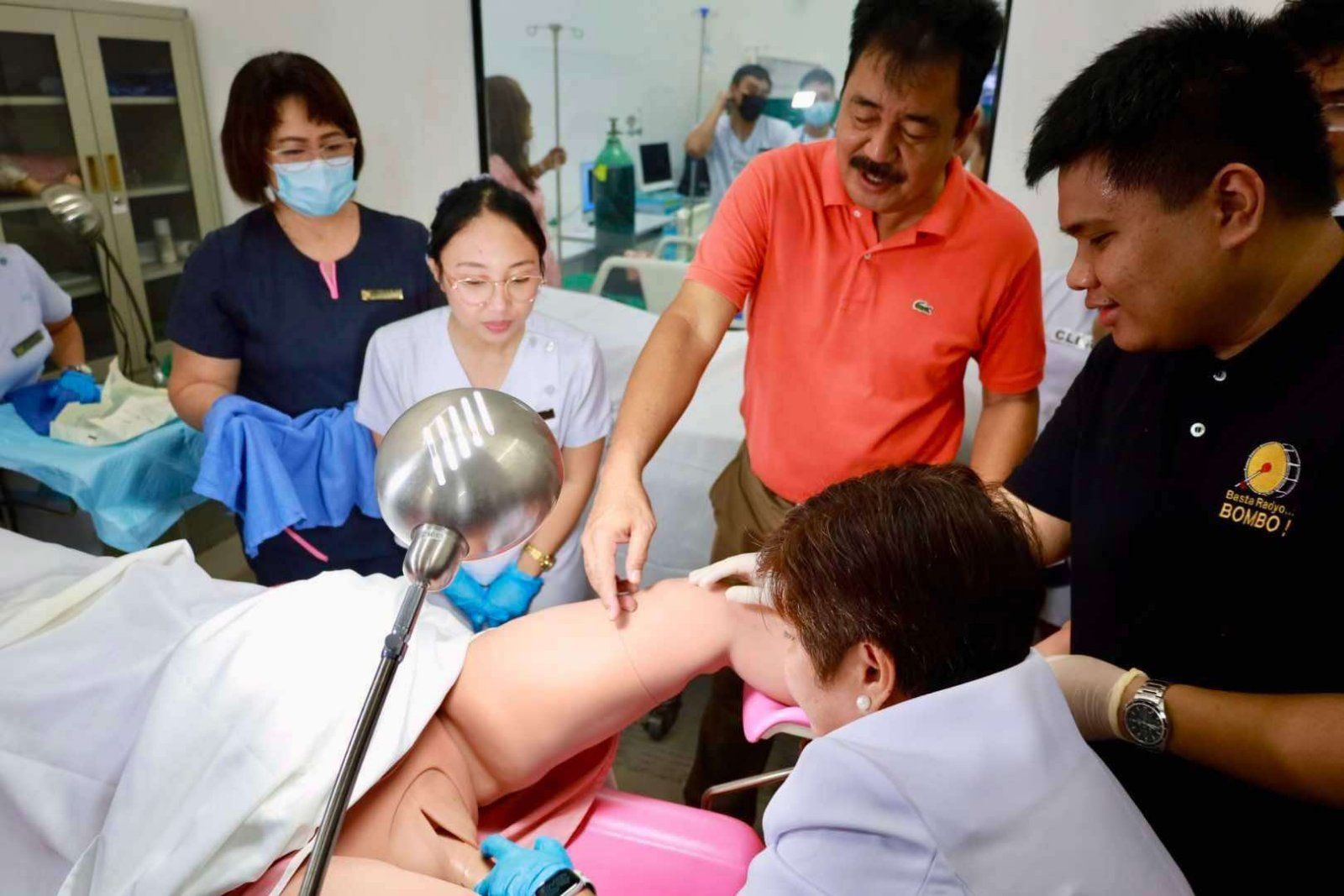CHED-funded simulation-based medical education at WVSU to produce more highly skilled doctors
The Commission on Higher Education (CHED) on Saturday, Aug. 31, announced that more highly skilled doctors will be produced through the simulation-based medical education it funded at West Visayas State University (WVSU).

CHED Chairman Popoy De Vera said President Marcos has instructed the Commission to “ensure our medical schools continue to produce world-class doctors who can practice the profession globally or serve our underserved communities.”
Through the Simulation-Based Education (SBE) project funded by CHED at WVSU, the Commission noted that “more world-class doctors with advanced clinical skills, patient care, and emergency response will now be produced to serve the country.”
CHED explained that Simulation-Based Medical Education provides realistic, immersive training that replicates real-life patient scenarios. This approach equips students with the essential knowledge, skills, and confidence needed to deliver high-quality patient care.
On Aug. 30, De Vera inaugurated the SBE Laboratory at WVSU, where he tested the simulation tools and equipment at the College of Medicine. The event was attended by students, university officials, and media representatives.
“Through the Doktor Para Sa Bayan Law, there are now 22 public universities with medical programs where students receive scholarships and will render return service in our underserved communities,” De Vera added.
Under CHED’s Leading the Advancement of Knowledge in Agriculture and Sciences (LAKAS) Program, three leading medical schools—University of the Philippines Manila, Mindanao State University - Gensan, and West Visayas State University—received P600 million worth of state-of-the-art equipment from 2022 to 2024.
This funding aims to enhance simulation-based education, training, collaboration, and research.
CHED allocated a total of P54,590,000 to West Visayas State University for the acquisition of advanced equipment, which will provide students and faculty with hands-on experience in a highly realistic medical environment.
The project has supplied high-quality manikins and task trainers that simulate human anatomy and physiological responses, allowing students to practice clinical procedures and decision-making in a safe, controlled environment.
Meanwhile, WVSU President Dr. Joselito F. Villaruz explained that simulation-based education is a “strategy” to enhance the medical education of medical schools in the country because it “allows our students to practice in a fault-free environment.”
“Students get to learn through simulators before they apply it to patients,” Villaruz said. “It makes a significant difference in terms of patient safety and builds confidence among students and medical practitioners,” he added.
WVSU College of Medicine Dean Dr. Victor A. Amantillo Jr. noted that by integrating simulation tools into the curriculum, the university aims to “foster a culture of continuous learning, collaboration, and research, which aligns with the university's commitment to excellence in healthcare education.”
The provided manikin equipment includes a high-fidelity adult patient simulator, a high-fidelity childbirth simulator, and a high-fidelity pediatric patient simulator, all of which enable learners to gain hands-on experience in handling emergencies and providing patient care.
Additionally, WVSU received advanced trainers for venipuncture, catheterization, rectal examination, clinical pelvic exams, and cardiopulmonary resuscitation.